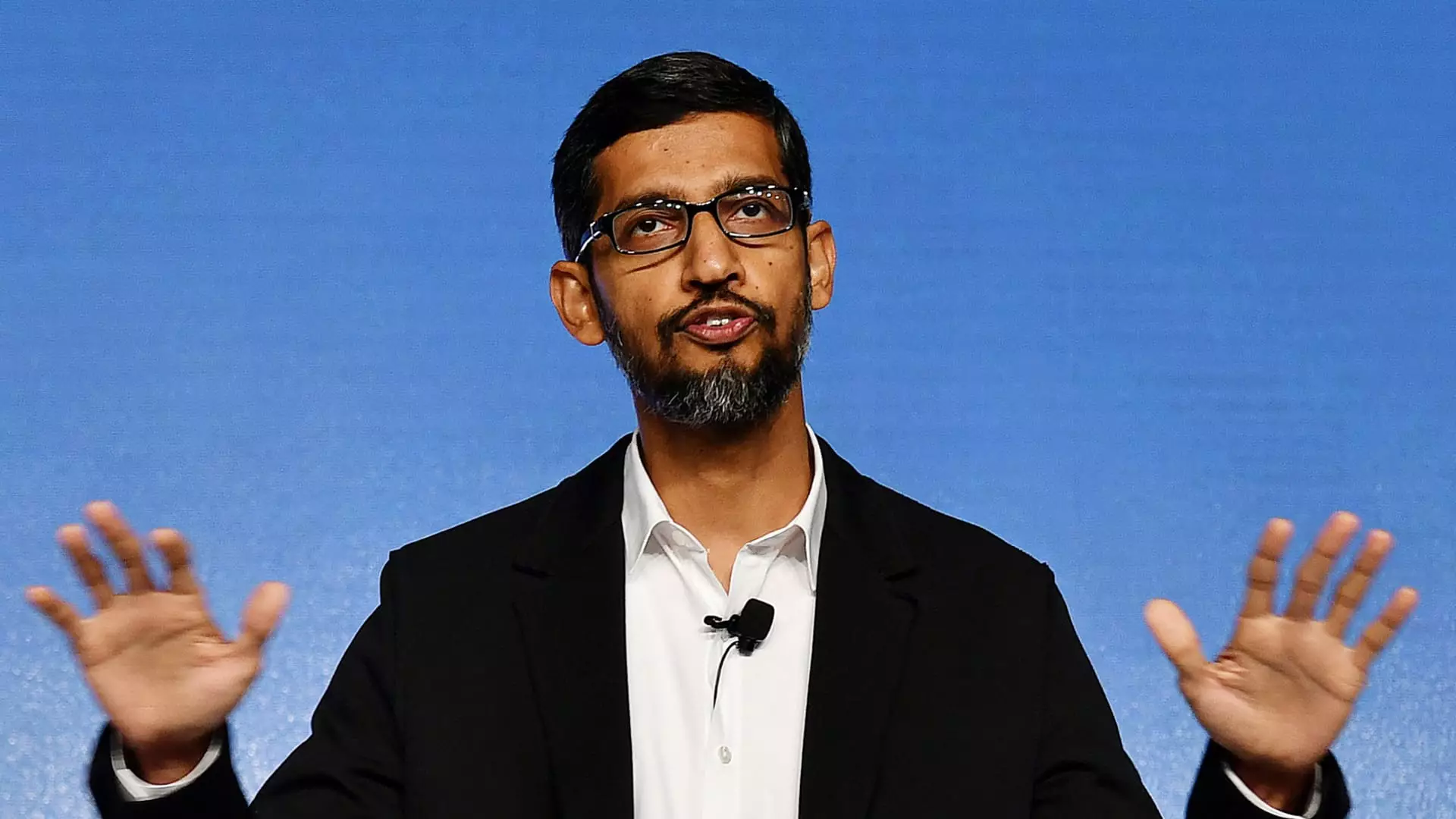In a world where the boundaries between personal expression and corporate policy are continually shifting, Google’s handling of employee political discussions has drawn significant scrutiny and debate. As the United States gears up for its elections, Google has taken definitive steps to rein in political expressions within its workforce, most notably through its internal communication platform, Memegen. This situation raises fundamental questions about the balance between free speech, workplace culture, and corporate responsibility.
Recent revelations indicate that Google has been actively moderating discussions related to the upcoming elections, urging employees to refrain from expressing political opinions on its internal forums. Correspondence obtained by CNBC highlights that Google executives have cautioned staff against using Memegen—a platform where employees traditionally share memes and humor—for political commentaries. Despite these admonishments, some employees have persistently used the platform to voice their opinions and critique the company’s policies, indicating a palpable tension within Google’s culture.
Sundar Pichai, Google’s CEO, sent a memo reminding employees of the company’s pivotal role in delivering “high-quality and reliable information” to a diverse audience. Pichai’s directive underscored the expectation that employees would act responsibly, maintaining the company’s reputation as a trusted information source. The insistence on neutrality sends a strong message: while personal opinions may differ, the organizational commitment to fostering an unbiased environment takes precedence.
The trajectory of Google’s internal policy regarding political discourse is significant. The introduction of guidelines in 2019 that prohibited employees from making statements perceived as “insulting” marks a new chapter in the company’s cultural evolution. While intended to foster a collaborative spirit, the expansive nature of these rules has led to accusations of stifling open dialogue. Critics argue that the lack of clarity around what constitutes a “demeaning” or “humiliating” statement opens the door to misinterpretation and potential overreach by management, particularly during times of heightened political tension.
Since these policies took effect, Google has faced internal backlash. Employees express concerns about their right to voice opinions on critical issues affecting their workplace, particularly in regards to projects like Project Nimbus, a substantial contract with the Israeli government. This project, among others, has been at the center of internal dissent, illustrating how corporate policies designed to mitigate conflict can inadvertently escalate dissatisfaction.
The landscape of workplace discussions is also influenced by legal precedents, such as a 2019 settlement with the U.S. National Labor Relations Board (NLRB). This ruling required Google to acknowledge employees’ rights to discuss workplace conditions without fear of repercussion. The juxtaposition of legal protections for free speech against the company’s stringent internal policies creates a convoluted dynamic for employees who wish to engage in discussions about political or social justice issues.
Moreover, the recent updates to Memegen’s guidelines, including the rapid removal of content deemed political, raise critical questions about the implications of suppressing discourse. With the integration of artificial intelligence to identify and restrict such content, the risk of inadvertently stifling constructive dialogue grows. Employees’ experiences reflect this tension, with reports of content being removed even when it merely expressed support or camaraderie among colleagues.
As Google navigates this complex realm of internal communication, the broader implications for other tech companies are palpable. The challenge of balancing a motivated workforce’s desire for free expression against the need for a cohesive corporate identity remains a significant hurdle. For organizations today, especially in the tech sector, addressing political discussions requires a nuanced approach that respects employee autonomy while maintaining a working environment that is inclusive and non-divisive.
Moving forward, Google may benefit from revisiting its approach to political discourse among employees. A more transparent dialogue that encourages open expression while clearly delineating the boundaries of acceptable discourse could foster a healthier workplace culture. By enabling employees to express their thoughts without fear of excessive moderation, Google could reinforce its status as a progressive workplace while navigating the intricate balance of corporate responsibility and employee freedoms.
Google’s handling of political discussions encapsulates a critical moment in the evolution of corporate culture. Striking the right balance between free expression and corporate identity will be essential not only for Google but for the entire tech industry as societal norms continue to evolve. The path forward will undoubtedly require adaptation, understanding, and a commitment to ensuring that all voices within the company can be heard responsibly.


Leave a Reply